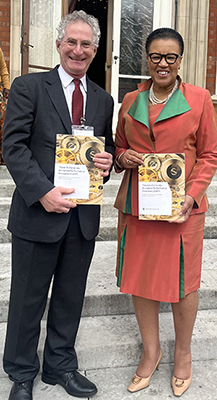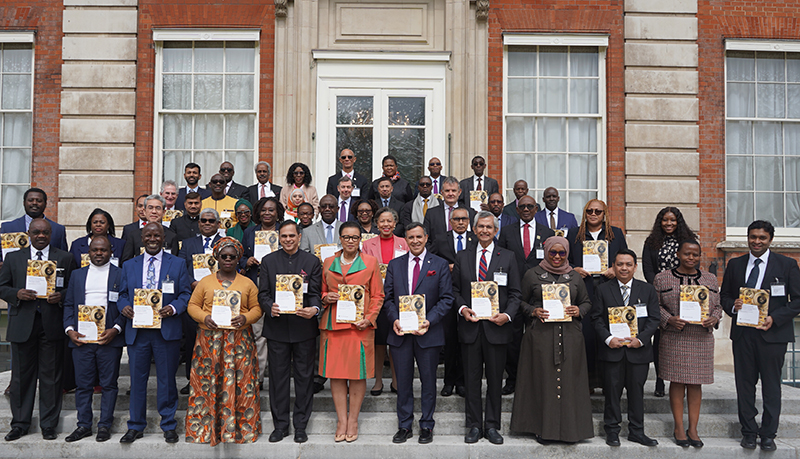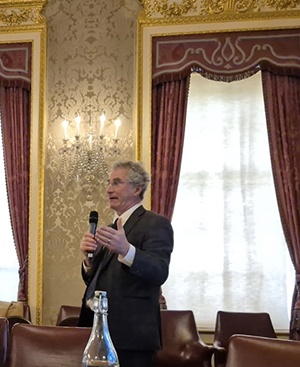
Reflections from a London Meeting with the Commonwealth

Last week, I had the honor of joining the biennial meeting of the Commonwealth Cabinet Secretaries and Heads of Civil Service from April 22-24, 2024, organized by the Commonwealth Secretariat in London, UK. Since its founding in 1949, the modern Commonwealth has grown in both scale and influence with 56 member countries, spanning six continents and representing a third of the world's population. Leaders from many of the Commonwealth’s 56 member states (see below picture) attended and over three days discussed a robust agenda and set of actions to be taken, which will lead to improved government performance across the Commonwealth and provide insights for the United States and other global partners.
Pictured left: Daniel Chenok with Commonwealth Secretary General, Rt Hon Paricia Scotland KC
Commonwealth Secretary General, The Honorable Patricia Scotland KC (King’s Counsel), provided leadership for the session and inspired many discussions on the importance of global partnership in addressing emerging challenges like artificial intelligence and the need for agile government. IBM Center Visiting Fellow Prajapati Trivedi, Special Envoy for implementation of the UN Sustainable Development Goals, led several sessions, including panels in implementation of the Generally Accepted Performance Principles (GAPP), and on the Commonwealth Hub for The Business of Government that I joined with the leader of the Hub, Professor Avanish Kumar of the Management Development Institute in New Delhi.

Book launch by Commonwealth Heads of Civil Service and Cabinet Secretaries.
In the panel, I highlighted (see below picture) the Center’s Future Shocks initiative, which focuses on helping governments develop greater capacity to prepare for and respond to risks and threats across the cybersecurity, supply chain, climate, workforce, and similar domains. I also invited Commonwealth officials to submit case studies of governments that have achieved positive outcomes in addressing such future shocks, around which our Center is hosting a challenge grant initiative in collaboration with the National Academy of Public Administration and the IBM Institute for Business Value.

- A keynote speech from the Prime Minister of Bhutan, which has driven many reforms around the GAPP framework.
- Many interesting presentations from leaders in attendance, including on e-government advances in Rwanda and Kenya that demonstrate a model for modernization and especially for the global south.
- An overview of India’s “CPGRAMS” program, which enables many millions of citizens to contact government about questions and concerns through a one-stop portal that uses AI to improve service and speed response time.
- Discussions about the Commonwealth’s work to support governments through a number of artificial intelligence initiatives, including an AI consortium for member states and partners – our Center has shared much research on AI and government with the Commonwealth, to help expand their knowledge base.
Daniel Chenok speaking at the Marlborough House, London
Our Center looks forward to collaborating with the Hub and the Commonwealth Secretariat in helping governments to share information and work together to improve performance over time.

(Postscript: the London Marathon took place on the day before the Conference, and I saw a world record set for women running in a “women’s only” competition – by not one but four runners, who were on mile 24 in this photo. A performance standard that can inspire governments to new records of achievement!)
Women Marathon Runners at the 24-mile mark in London (Picture Credit: Daniel Chenok)



